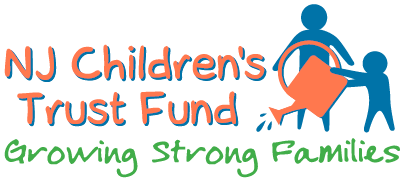| For Immediate Release | Contact: Ernest Landante, Jr. |
| May 31, 2016 | 609-888-7915 |
TRENTON – Seeking to prevent sleep-related infant deaths and injuries, the New Jersey Department of Children and Families (DCF) is encouraging parents and caregivers to create safe sleep environments for their infants by following some simple, preventative steps.
First, when placing a baby to sleep, always place the baby on his or her back. Remember that babies should always sleep alone and never with soft items, such as stuffed animals and crib bumpers. Equally important, babies should always have their own sleeping environment, such as a bassinet, crib, or Pack 'n Play®, which should be placed in the same room with the parents or caregiver.
The National Institute for Health (NIH) reports that Sudden Infant Death Syndrome (SIDS) is the leading cause of death among babies between 1 month and 1 year of age. SIDS is sometimes referred to "crib death" because it is associated with the timeframe when the baby is sleeping. While cribs themselves do not cause SIDS, a baby's sleep environment can influence sleep-related causes of death.
DCF is asking all residents and shore vacationers to follow safe infant sleep practices throughout the year.
“The summer means having fun and relaxing at the Jersey Shore,” said DCF Commissioner Allison Blake. “However, when it comes to infant safety, there’s never time for relaxing.”
The department has partnered with the New Jersey Highway Authority to place signs at New Jersey Turnpike and Garden State Parkway tollbooths reminding adults that babies should always sleep alone. The message will begin appearing at tollbooths and on the PNC Arts Center electronic billboard in June.
Additional infant safe sleep tips:
- Research shows that bed sharing (falling asleep with your baby) can be unsafe because adults (or children) can accidentally roll onto a baby while sleeping.
- Bed sharing is especially dangerous if an adult has taken drugs, alcohol, or medication that makes them sleepy.
- Adult beds are not safe because a baby can get trapped between the mattress and wall, headboard, or footboard.
- It is not safe for a baby to sleep on a couch, whether with you or alone.
- Breastfeeding and bonding are very important to a baby’s health. It’s okay to nurse baby in bed, but remember to place your baby in the crib when it’s time for sleep.
- Babies can be placed on their stomach when awake. Supervised “tummy time” during awake hours allows for normal development.
- Provide a smoke-free environment for your baby.
- Never lay a baby to sleep on a pillow. Babies under one year old should never be given a pillow for the head.
- Soft materials can interfere with a baby’s breathing. Babies should not sleep with pillows, quilts, comforters, blankets, or stuffed toys.
- Use a wearable blanket or other type sleeper. Use sleepwear without strings or ties.
- Never lay a baby to sleep near appliances, toys, or household items that dangle, such as window treatment cords, telephone wires, and computer extensions.
- Babies should never sleep with a hot-water bottle or electric blanket, next to a radiator, heater, or fireplace, or in direct sunlight.
- Bedroom temperature should not be too warm. Babies should not be over bundled.
More information about safe sleep for infants is available by downloading the department’s Safe Sleep for Infants brochure at http://www.nj.gov/dcf/documents/news/publications/SafeSleepEnglish.pdf.
DCF is dedicated to ensuring a better today and an even greater tomorrow for every individual the department serves. In partnership with New Jersey's communities, DCF ensures the safety, well-being, and success of New Jersey's children and families. DCF funds and directly provides services and support to over 100,000 women, children and families each month.








